
Keynote Speakers
Blaise Agüera y Arcas |
Xuedong Huang |
Masaru Kitsuregawa |
Bin Yu |
Aidong Zhang |
Decentralized Machine Learning
Blaise Agüera y Arcas, Distinguished Scientist, Google AI, USA
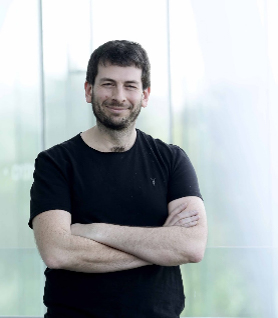 Abstract: In the past decade we have seen very rapid growth in two fields: cloud services, and neural networks. These two are connected, in that logs from services are the fuel that has powered data-hungry deep learning algorithms. However, there are several forces on the other side of the coin, pushing neural capabilities onto the device and out of the cloud. These include: the development of power-efficient on-device neural processors; scaling laws relating energy density, size, and bandwidth; and an increasing demand for data privacy. This talk will address these trends, technologies designed to address them (including Federated Learning, quantization, and device-friendly architectures like MobileNet), and the product landscape emerging from these new developments.
Abstract: In the past decade we have seen very rapid growth in two fields: cloud services, and neural networks. These two are connected, in that logs from services are the fuel that has powered data-hungry deep learning algorithms. However, there are several forces on the other side of the coin, pushing neural capabilities onto the device and out of the cloud. These include: the development of power-efficient on-device neural processors; scaling laws relating energy density, size, and bandwidth; and an increasing demand for data privacy. This talk will address these trends, technologies designed to address them (including Federated Learning, quantization, and device-friendly architectures like MobileNet), and the product landscape emerging from these new developments.
Blaise Agüera y Arcas leads a team at Google focusing on Machine Intelligence for mobile devices—including both basic research and new products.
His group works extensively with deep neural nets for machine perception, distributed learning, and agents, as well as collaborating with academic institutions on connectomics research. Until 2014 he was a Distinguished Engineer at Microsoft, where he worked in a variety of roles, from inventor to strategist, and led teams with strengths in interaction design, prototyping, computer vision and machine vision, augmented reality, wearable computing and graphics. Blaise has given TED talks on Seadragon and Photosynth (2007, 2012) and Bing Maps (2010). In 2008, he was awarded MIT’s prestigious TR35 (“35 under 35”).
Big Data for Speech and Language Processing
Xuedong Huang, Microsoft Technical Fellow of Microsoft Cloud and AI, Microsoft, USA
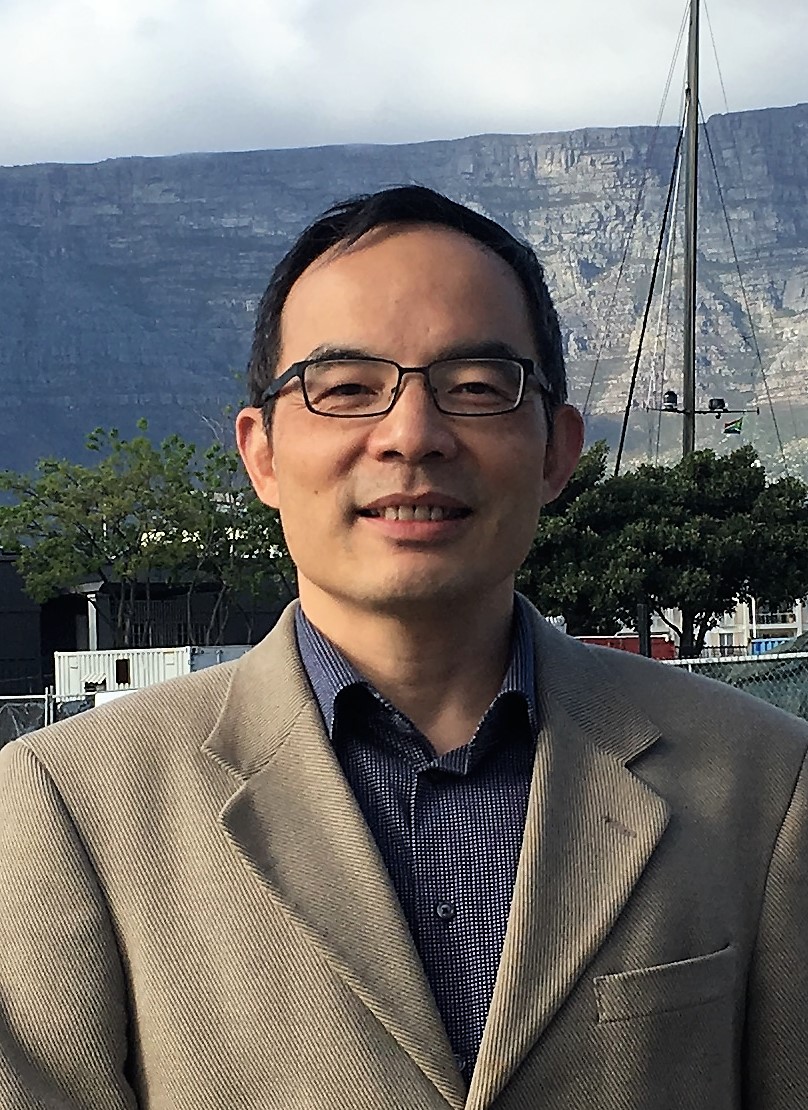 Abstract: Amongst all creatures the human species stands unique in Darwin’s natural selection process. It is no exaggeration that speech and language helped to differentiate human intelligence from animal intelligence in the evolution process. The impact of big data and cloud to speech and language evolution is foundational to realize the society’s AI vision. This talk will review how Microsoft achieved human parity on both conversational speech recognition and news machine translation research tasks and highlight significant challenges remaining to make speech and language production services mainstream in our AI journey.
Abstract: Amongst all creatures the human species stands unique in Darwin’s natural selection process. It is no exaggeration that speech and language helped to differentiate human intelligence from animal intelligence in the evolution process. The impact of big data and cloud to speech and language evolution is foundational to realize the society’s AI vision. This talk will review how Microsoft achieved human parity on both conversational speech recognition and news machine translation research tasks and highlight significant challenges remaining to make speech and language production services mainstream in our AI journey.
Dr. Xuedong Huang is a Microsoft Technical Fellow in AI and Research. He leads Microsoft’s Speech and Language Group. In 1993, Huang joined Microsoft to found the company’s speech technology group. As the general manager of Microsoft’s spoken language efforts, he helped to bring speech to the mass market by introducing SAPI to Windows in 1995 and Speech Server to the enterprise call center in 2004. He served as General Manager for MSR Incubation and Chief Architect for Bing and Ads. In 2015, he returned to AI and Research to lead the advanced technology group. In 2016, he led the team achieving a historical conversational speech recognition human parity milestone on the Switchboard task. He helped to advance AI across Microsoft’s whole AI Stack: Solutions: AI for customer support (Project Toronto), Voice Assistant Cortana, Microsoft Translator; APIs: Cognitive Services on Azure; Engines: Speech, Machine translation, Gesture, and NLP; Deep Learning infrastructure: Cognitive Toolkit (CNTK) and GPU Cluster (Project Philly)
He was on the faculty of School of Computer Sciences at Carnegie Mellon University before joining Microsoft. He received Alan Newell research excellence leadership medal in 1992 and IEEE Best Paper Award in 1993. He was named the Asian American Engineer of the Year (2011), and Wired Magazine’s 25 Geniuses (2016). He holds over 100 patents and published over 100 papers & 2 books. He received his PhD, MS, and BS in Computer Science from the University of Edinburgh, Tsinghua University, and Hunan University respectively. He has been elected fellow of IEEE and ACM.
Transformational Role of Big Data in Society 5.0
Masaru Kitsuregawa, Professor and Director, University of Tokyo and National Institute of Informatics, Japan
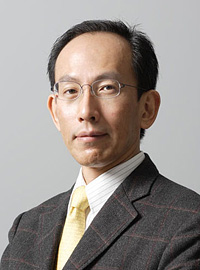 Abstract: Japan is launching ‘Society 5.0’, the vision for a future smarter society. One of the fundamental pillars of Society 5.0 is to help the society become smarter in a data-driven way. Through the advance of Internet of Things (IoT), the rapidly growing big data is substantially transforming our society, for example, through smarter commercial products and services. In this talk, we will focus on the role of big data in providing smarter services for societal benefits, with special emphases on disaster management and socialized healthcare. In accordance to Sustainable Development Goals (a United Nations initiative), our solution frameworks are being deployed both in Japan and partner developing countries.
Abstract: Japan is launching ‘Society 5.0’, the vision for a future smarter society. One of the fundamental pillars of Society 5.0 is to help the society become smarter in a data-driven way. Through the advance of Internet of Things (IoT), the rapidly growing big data is substantially transforming our society, for example, through smarter commercial products and services. In this talk, we will focus on the role of big data in providing smarter services for societal benefits, with special emphases on disaster management and socialized healthcare. In accordance to Sustainable Development Goals (a United Nations initiative), our solution frameworks are being deployed both in Japan and partner developing countries.
Dr. Masaru Kitsuregawa is the Director General of National Institute of Informatics (NII), and a professor at the University of Tokyo. He received his Ph.D degree in information engineering from the University of Tokyo in 1983. He has been working in the area of high performance database system and systems for big data. He has served as President of Information Processing Society of Japan (IPSJ) and a science advisor for Ministry of Education, Culture, Sports, Science and Technology, Japan. He is a fellow of the ACM, IEEE, IPSJ and IEICE.
Three principles of data science: predictability, computability, and stability (PCS)
Bin Yu, Departments of Statistics and of Electrical Engineering & Computer Sciences, University of California at Berkeley, USA
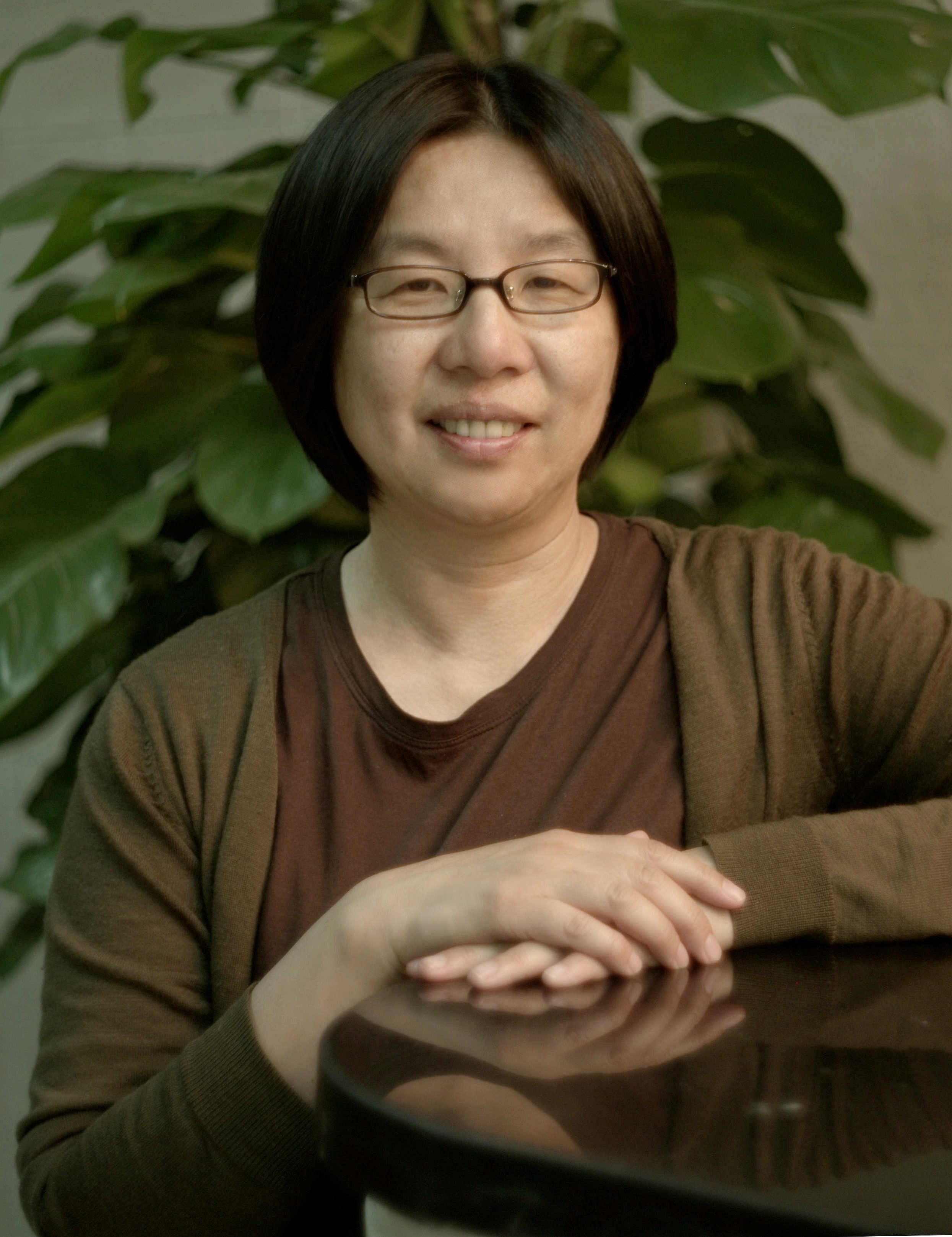 Abstract: In this talk, I'd like to discuss the intertwining importance and connections of three principles of data science in the title and the PCS workflow that is built on the three principles. The principles will be demonstrated in the context of two collaborative projects in neuroscience and genomics for interpretable data results and testable hypothesis generation.
Abstract: In this talk, I'd like to discuss the intertwining importance and connections of three principles of data science in the title and the PCS workflow that is built on the three principles. The principles will be demonstrated in the context of two collaborative projects in neuroscience and genomics for interpretable data results and testable hypothesis generation.
Dr. Bin Yu is Chancellor’s Professor in the Departments of Statistics and of Electrical Engineering & Computer Sciences at the University of California at Berkeley. Her current research interests focus on statistics and machine learning theory, methodologies and algorithms for solving high-dimensional data problems.
Her group is engaged in interdisciplinary research with scientists from genomics, neuroscience, and precision medicine.
She obtained her B.S. degree in Mathematics from Peking University in 1984, her M.A. and Ph.D. degrees in Statistics from the University of California at Berkeley in 1987 and 1990, respectively. She is Member of the U.S. National Academy of Sciences and Fellow of the American Academy of Arts and Sciences. She was a Guggenheim Fellow in 2006, and the Tukey Memorial Lecturer of the Bernoulli Society in 2012. She was President of IMS (Institute of Mathematical Statistics) in 2013-2014 and the Rietz Lecturer of IMS in 2016. She received the E. L. Scott Award from COPSS (Committee of Presidents of Statistical Societies) in 2018.
On Metric Learning for Complex Data Analysis
Aidong Zhang, SUNY Distinguished Professor and Program Director, State University of New York at Buffalo and National Science Foundation, USA
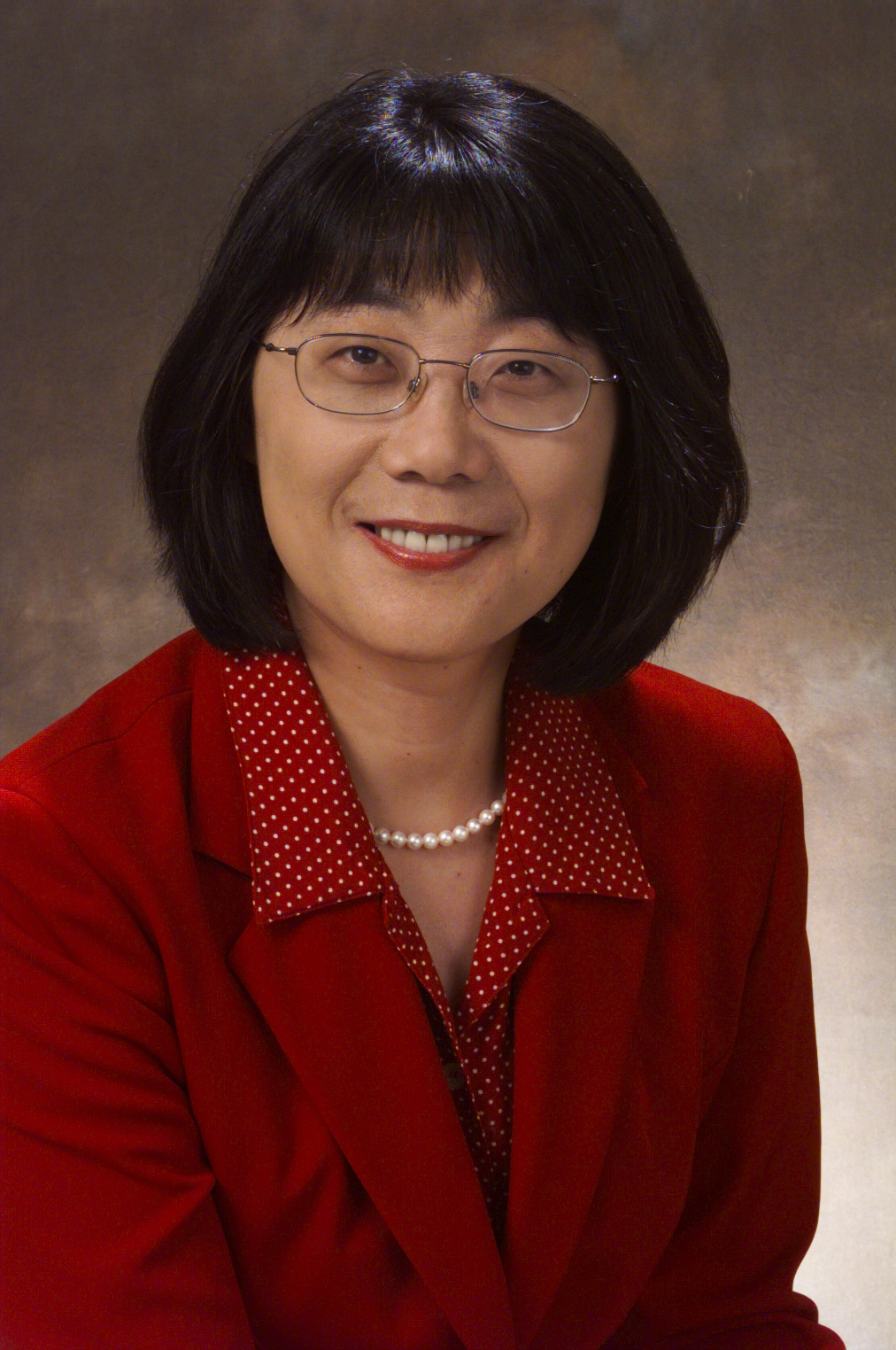 Abstract: Comparing and measuring similarities or distances between pairs of instances is a basic but important step toward successes of many data mining and machine learning approaches. In this talk, I will discuss how both linear and nonlinear metric learning can be approached to capture various important relationships for complex data sets and how the learned metrics can be used for complex data analysis.
Abstract: Comparing and measuring similarities or distances between pairs of instances is a basic but important step toward successes of many data mining and machine learning approaches. In this talk, I will discuss how both linear and nonlinear metric learning can be approached to capture various important relationships for complex data sets and how the learned metrics can be used for complex data analysis.
Dr. Aidong Zhang is a SUNY Distinguished Professor of Computer Science and Engineering at the State University of New York (SUNY) at Buffalo where she served as the Department Chair from 2009 to 2015, and has also held adjunct professor positions in both Biomedical Engineering and Biomedical Informatics Departments. She is currently on leave and serving as a Program Director in the Information & Intelligent Systems Division of the Directorate for Computer & Information Science & Engineering, at the National Science Foundation. Her research interests include data mining/data science, machine learning, bioinformatics, and health informatics. She has authored over 300 research publications in these areas. Dr. Zhang currently serves as the Editor-in-Chief of the IEEE Transactions on Computational Biology and Bioinformatics (TCBB). She served as the founding Chair of ACM Special Interest Group on Bioinformatics, Computational Biology and Biomedical Informatics during 2011-2015 and is currently the Chair of its advisory board. She is also the founding and steering chair of ACM international conference on Bioinformatics, Computational Biology and Health Informatics. She has served as editors for several other journal editorial boards, and has also chaired or served on numerous program committees of international conferences and workshops. Dr. Zhang is an ACM Fellow and an IEEE Fellow.